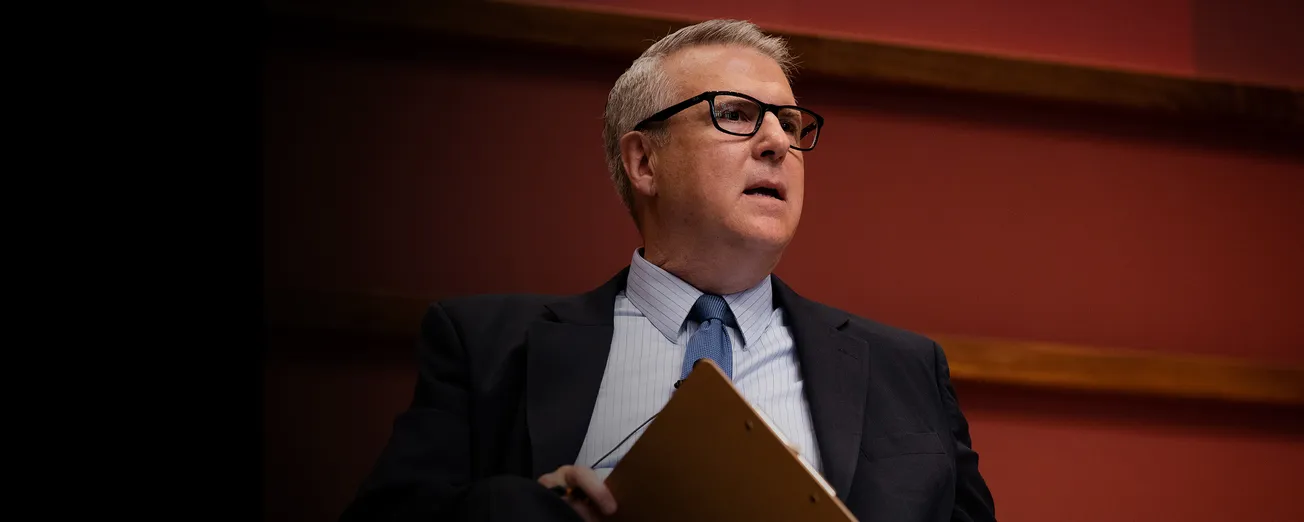Table of Contents
Over the past several months, Democrats and Republicans have hotly debated the threat of defaulting on the public debt. The discussion culminated on Aug. 2, 2011, when Congress passed legislation to increase the United States’ debt ceiling.
The compromise reached by both parties was a rise in the debt-ceiling limit by at least $2.1 trillion, an increase which will last through the next presidential election. The plan also called for the reduction of government spending by $1 trillion over the next ten years, and mandated the establishment of a bipartisan committee to identify an additional $1.5 trillion for deficit reduction.
The Review interviewed John Cogan, a Hoover Fellow and senior economic adviser for George W. Bush’s first election campaign, to get his thoughts on the debt crisis.
**The Consequences of Default
**
Many commentators, including the Obama administration, warned that not raising the debt ceiling would have resulted in the United States government defaulting. Federal Reserve Chairman Ben Bernanke said the consequences could be “catastrophic.”
Cogan, however, does not believe the situation was so drastic. He described the default discussions as a “scare tactic.”
“The alternative would have been to first start reducing other government spending,” he explained. “There are revenues coming in which could be used as a first priority to meet the interest payments on the debt, and as a second priority perhaps to spend on defense, and then as a third priority on other essential government services.”
**The Debt Problem
**
Though the risk of default has been temporarily abated, Cogan is still concerned about the debt problem. “The current debt crisis is the most important economic issue of our time,” said Cogan. He explained that democracies tend to live beyond their means. “Congress has chosen to spend more than it is taking in, and has chosen to finance the excess spending by issuing debt, and so the debt has grown,” he explained.
Cogan recounted the recent economic downturn and falling revenues as a result of the depressed economy. “Congress then passed an $800 billion stimulus bill that did nothing to improve the economy. So the result is this exacerbation of a debt problem that has been growing for five decades,” he said.
The United States has run a deficit almost every single year over the past half-century. In that time, it has only ever reduced the level of appropriations for discretionary spending three times. The recent reduction in the debt compromise was the fourth time Congress has ever passed such a policy.
Though the uncharacteristic reduction of discretionary spending may excite those who have been concerned about the United States’ fiscal situation, Cogan warns, “It doesn’t by any means fix the problem or even come remotely close to fixing the problem.”
He continued, “It represents the beginning, hopefully, of recognition by Congress that it has to change its ways and has to begin to cut the level of spending.” He hopes that voters will be able to recognize that, and that they will be willing to support changes in entitlement spending in the near future.
Cogan added, “You cannot change the fundamental course of spending over night.” He believes the debt ceiling increase was inevitable, but that it was only a first step in the right direction.
He stressed the seriousness of the situation for the current college student, explaining that these policies will “consign us eventually to a slower growing economy and a higher burden of taxation. The combination of the two means today’s college students [will have] a lower standard of living.”
**Budget Solutions
**
While the debt ceiling crisis might be over, the United States’ must still deal with major annual budget deficits. Medicare, Medicaid, and Social Security are responsible for just over 40 percent of federal government spending, according to the 2012 fiscal year budget proposal made available by the Obama administration. Because funding these programs is mandatory, any budget changes affecting them must be changed by law.
Cogan suggests, “Congress should move very quickly to begin to slow the growth in Social Security benefits by enacting the needed reforms.” He also called for Medicare and Medicaid reform as quickly as possible.
“The defense budget shouldn’t be left out,” Cogan stated about defense spending, responsible for just under 20% of total government spending. “We have a wide array of military forces spread throughout the world, and we need a complete review of the need for those forces in meeting the threat to the United States. The extent of the capacity that we have there is more [a] result of inertia than as a response to a national security need.”
According to Cogan, the most important factor in meeting these budget challenges is economic growth. “Without economic growth all of the budget slashing, and cutting, and reforming is not going to result in a balanced budget.” He believes the government needs to ask “not what is immediately important so much as to ask what is important for economic growth over the long haul and put those policies in place now.”
Cogan warns, “The group that is going to bear the burden of this problem if we don’t fix it soon is going to be the current generation of college students and those younger.”




